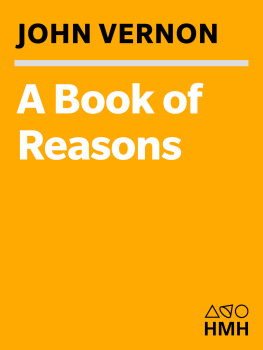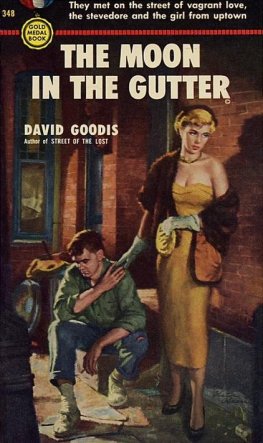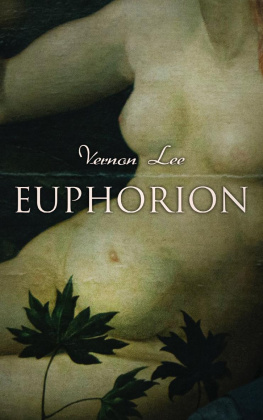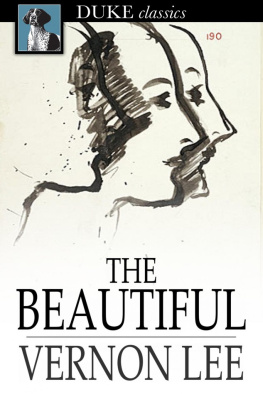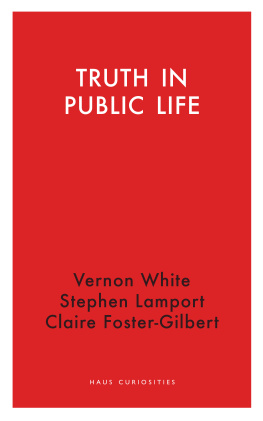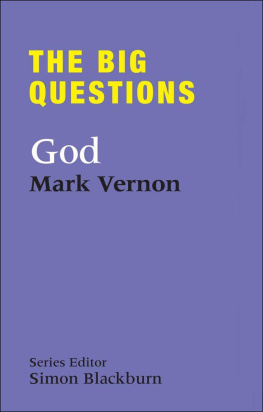Copyright 1999 by John Vernon
All rights reserved
For information about permission to reproduce selections from this book, write to or to Permissions, Houghton Mifflin Harcourt Publishing Company, 3 Park Avenue, 19th Floor, New York, New York 10016.
www.hmhco.com
The Library of Congress has cataloged the print edition as follows:
Vernon, John, date.
A book of reasons/ John Vernon
p. cm.
Includes bibliographical references (pp. 25972).
ISBN 0-395-94477-5
1. Vernon, John, 1943 Family. 2. Novelists, American20th centuryFamily relationships. 3. Collectors and collectingPsychological aspects. 4. Eccentrics and eccentricitiesUnited States. 5. BrothersDeathPsychological aspects. 6. ReclusesUnited States. I. Title.
PS 3572 E 76 Z 465 1999
813'.54dc2l
[ B ] 99-15173 CIP
Lines from The Four Wishes of Saint Martin are from Gallic Salt:
Eighteen Fabliaux, translated from the Old French by Robert Harrison.
Copyright 1974 by the University of California Press.
Reprinted by permission of the author.
AUTHORS NOTE
To protect the privacy of friends and family,
Ive changed some names of people
and places in this book.
e ISBN 978-0-547-99514-4
v2.0518
For Pat and Jack Wilcox,
for Holly and Frank Bergon,
for Bob Mooney and family
Special thanks to Lenny Davis
for suggesting the idea for this book
Finally, for my sons, Charles and Patrick
The secret to life? Clean your room.
Grateful acknowledgment is made to the National Endowment for the Arts for a fellowship that gave me the time to write this book, and to the State University of New York at Binghamton for its additional support.
These times are the ancient times, when the world is ancient.
Francis Bacon
If one knew the facts, would one have to feel pity even for the planets? If one reached the heart of the matter?
Graham Greene
Preface
T HE PREMISE of this book may be simply stated: Ive chosen a three-month period of my lifelate February to early May of 1996and attempted to trace the historical roots of the everyday occurrences and objects in it, from something as commonplace as buying a thermometer to something as singular, yet clearly familiar, as attending my late brothers wake. The roots of such events in history, science, and mythology are legion. And, Im convinced, they can be communicated only from the vantage point of a positioned mind, in a specific place and time, harnessed to a limited point of view. The narrative of this three-month period is the vantage point Ive chosen.
But my choice was not arbitrary. These months contained a chain of events that followed my brothers death, and impelled me to reflect on and examine both his life and my own. In a sense, then, this is two books: one a memoir concerning the things I learned about a lonely and troubled man I barely knewa brother fifteen years older than methe other an account of everyday life and its sources. That the life of a recluse may launch speculations about everyday existence only demonstrates my thesis: history in its minute particulars touches us all, and in the least expected ways.
So: a book of reasons. Reasons for my brothers way of life and death, reasons for my response to his death. I am aware that any search for reasons in our time has a lot to contend with. For one thing, the gratifications of consumer technology have infantilized us all. Our interests are mostly passing, and we satisfy them with distracted attention, as unconscious of reasons and their historical roots as of the farthest galaxy. For another, our most characteristic science, the one that appears to best express the spirit of the agechaos theoryimplies a universe so random and complex that we can never know who or what is responsible for anything. Chaos theory pures causes, dissolving such notions as responsibility. Reasons, by contrast, assign responsibility. This book walks the broken ridge between the two. Reasons, like chaos, can be multiple and diffuse, scattered to the corners of space and time, unless a search threads the mess and snags for it a shape. Then, as Ive learned, the act of searching itself also becomes an act of taking responsibility.
Reasons, finally, are one means of learning to bear painful news. For me, this meant bearing the sad and strange things I learned about my brother after his death. Referring them to history doesnt mitigate a wasted life. But referring them to history is my way of trying to understand that waste. As a novelist and teacher preoccupied with the past, Ive spent much of my career digesting research into story. Ive written about French and American explorers, about the Ute Indians, about women miners in Colorado. This book reverses that process: it takes a true story, recent and personal, and refers it to the past, to the surprising and irregular upheavals of history. And though the story is my brothers, it is also mine. It is the story of a voyage, of my search for a way to comprehend a life that left behind not splendid monuments but ordinary wreckage.
I. HEAT
1. PAUL
I WAS DRIVING to a Wal-Mart in southern New Hampshire to buy a thermometer the day the world grew unfamiliar. My mind unclogged, it seemedas though whatever Id previously known turned out to be some sort of a blockage in a drain. It started slowly, even coyly, with vague irritations: heavy traffic on Route 28, the bum air conditioning in the van my brotherd left me, the resulting open windows, the heat and humidity, the fumes from idling cars. I passed Mays, where wed ordered the flowers for his funeral, passed the mini-malls, Granite State Potato Chips, the rows of yellow construction equipment lined up like Tonka toys behind a chain-link fence.
The worst was over, Id been thinking. I could indulge in a little complacency for a change. Id be driving home soon, back to upstate New York. And I was heading toward a Wal-Mart, the ultimate sanctuary of choice in Emporium America.
A car behind me honked, but it barely registered. Stupid chatter began running through my head about the value of my brother Pauls house and his adopted states 18 percent inheritance tax, which applied horizontally to siblings but not vertically to parents or children. How strange, I thought. A child has only half your genes, after all. This tax clearly favored hierarchies dimly remembered from English common law. I was explaining this to someone in my head, and explaining the fact that Paul had never married, when, of its own weight, a picture slid from a brain celljogged by these thoughtsof Paul as a boy holding in his hand the branch of an apple tree, half hung with apples. The rest, miraculously, had broken into blossom.
Memory works in the brain like brachiated lightning unloading its contents in faded afterimages. The picture weakened but still, in a sense, I remembered the memory, then something else happened. A line shooting up through walls of tissue guttered and caught, bisecting me vertically. It pulled on my heart like a cord on a tent: the first ache of sadness for my poor brother. And just an hour ago Id been stupid with joy!
He held out the branch with fading reluctance like a boy whod been bad. Was he returning it to someone? Other images drifted in, visual analogs of overlapping whispersthe double and triple exposures of memory. It felt like spilling water on a newspaper and reading tomorrows weather through yesterdays scandal. Through Paul and his branch I saw my grandmothers house, smelled wet ashes in her driveway, felt the warmth of the rose quartz sitting in the recesses, tall and narrow, beside her front door. Ghosts more solid than the honking world around me. Where had that picture of my brother come from? Hed lived with my grandmother in central Massachusetts when I was growing up, and my parents and I had visited every weekend. By the time I was a child Paul was past his teens, and I thought of him more as an uncle than a brother. An uncle with a hobbythrough the walls of Grandmas house I saw Pauls room hung with model airplanes, each suspended on a wire from the ceiling, each pieced together from balsa wood and cardboard with X-Acto knives and small, precise fingers.

